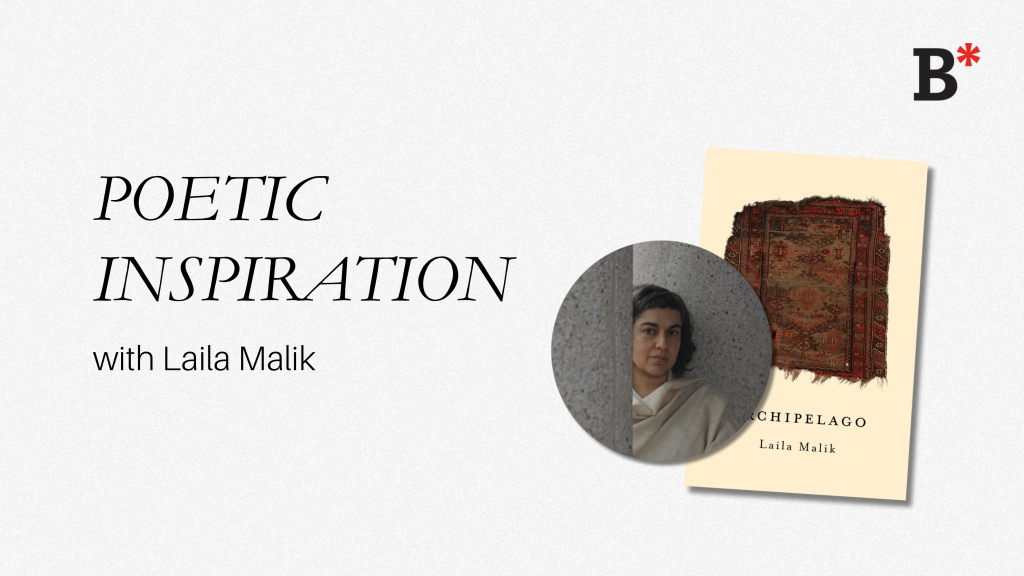Poetic Inspiration with Laila Malik

For the final installment of our “Poetic Inspiration” series, we’re interviewing Laila Malik, author of archipelago!
B*: Please share up to three poetry books or poets that are important to you, and helped influence the writing of archipelago. Please also share how they influenced your book.
LM: Audre Lorde’s “A Litany for Survival.” Before the era of smartphones, a faintly feral friend in Montreal who didn’t own a computer or a printer found a way to type this poem out and print it. He folded it four times so it was a small square and unceremoniously handed it to me. This poem was ballast as I was writing archipelago, flailing against all the naysayers shushing me in my head. With her gentle, quiet, serious beauty, Lorde un-shushed me.
Sanna Wani’s “Schizotheism,” from My Grief, the Sun. This is a slight fib. I read Sanna’s book when it came out in 2022, and by then archipelago was already written, in the final stages of pre-publication. But reading “Schizotheism” was like finally hearing the lyrics to an old, familiar song, salty-sweet with meaning that for once felt directly, specifically resonant to me. Reading it in that moment, in the last dark winter before archipelago launched, felt like we were finally ready to have a conversation, the world and I.
Hala Alyan’s Hijra. Sometimes diaspora are a polestar for diaspora. For all the vast trajectories our peoples spanned, we build small-small fences around our thoughts, and say, “our stories can only live within these tight boundaries”. Reading Hijra was a kind but stern reminder to hear myself think, to feel myself feel, to claim the authentic grain of my inheritances, notwithstanding all the spectres and admonishments. Hijra was permission.
B*: Please share a writing prompt for aspiring poets that you have used to start composing a new poem.
LM: I don’t tend to use prompts, but my poetic writing often begins with remembered or overheard expressions or turns of phrase that might be mundane in context, but are stark or sobering when isolated and examined. It’s a way of continuing to parse and document opaque, uncharted, collective and individual experience through the household furniture of our day-to-day phrasing.
Prompt: Extrapolate a poem out of a word or a sentence recently (or in the past) used by someone you loved or loathed, or even a stranger (your barista, your colleagues, the person next to you on the bus, the news anchor) that caught and hung strangely in your mind.

